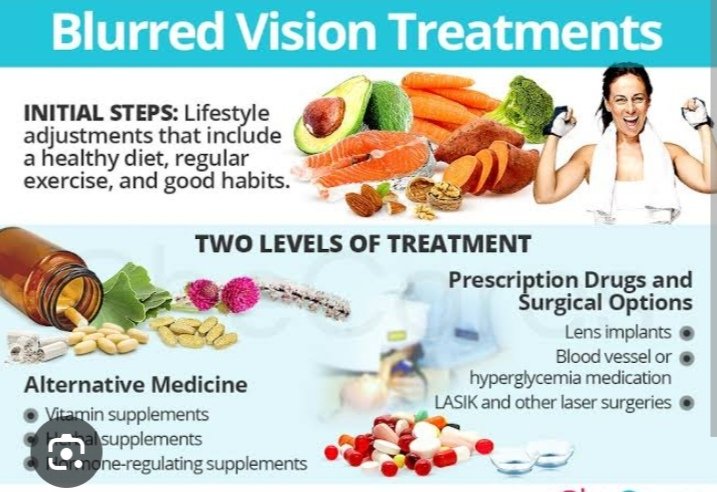How to Manage and Treat Blurry Vision
Ways you can treat blurry vision
Blurry vision can be caused by a variety of factors, and treatment depends on the underlying cause. For age-related blurry near vision (presbyopia), Vuity (pilocarpine hydrochloride opthalmic solution) 1.25% is a prescription eye drop specifically approved to improve near vision in adults, according to Vuity and Cascadia Eye. Other potential treatments include glasses or contact lenses, laser eye surgery, or addressing underlying conditions like cataracts or glaucoma with appropriate medications.
Here’s a breakdown of common causes and treatments for blurry vision:

1. Age-related Blurry Vision (Presbyopia):
- Vuity (pilocarpine hydrochloride ophthalmic solution) 1.25%:This prescription eye drop is designed to improve near vision in adults, according to Vuity and Cleveland Eye Clinic. It works by constricting the pupil, which increases depth of field.
- Other options:Corrective lenses (reading glasses) and in some cases, even laser eye surgery, can help.
2. Underlying Conditions:
- Cataracts:Clouding of the lens, causing blurry vision, can be treated with surgery to replace the clouded lens.
- Glaucoma:A condition that damages the optic nerve, can be treated with eye drops like dorzolamide (Trusopt) and brinzolamide (Azopt), or newer medications like netarsudil (Rhopressa).
- Diabetes:High blood sugar can damage blood vessels in the eyes, leading to blurry vision. Managing blood sugar levels is crucial.
- Migraines:Ocular migraines can cause temporary blurry vision, often accompanied by other symptoms. Treatment typically involves migraine medications.
- Dry Eyes:Can cause blurry vision, and treatments include artificial tears, eyelid hygiene practices like warm compresses and eyelid massages, and in some cases, prescription medications.
- Eye Infections or Injuries:Can cause temporary blurry vision, and treatment depends on the specific cause and may include antibiotics or other medications.
3. Other Factors:
- Medications: Some medications can have blurry vision as a side effect.
- Nutritional Deficiencies: Certain vitamins and nutrients, like Vitamin A, C, and E, are important for eye health, according to GoodRx.
- Eye Strain: Prolonged use of digital devices can cause eye strain and blurry vision. Taking breaks and practicing the 20-20-20 rule (every 20 minutes, look at something 20 feet away for 20 seconds) can help, says the American Academy of Ophthalmology.
When to Seek Medical Advice:
It’s important to see an eye doctor for a comprehensive eye exam if you experience persistent or sudden blurry vision, or if it’s accompanied by other symptoms like pain, flashes of light, or floaters. Early diagnosis and treatment are crucial for preventing vision loss.


One thought on “How to Manage and Treat Blurry Vision”